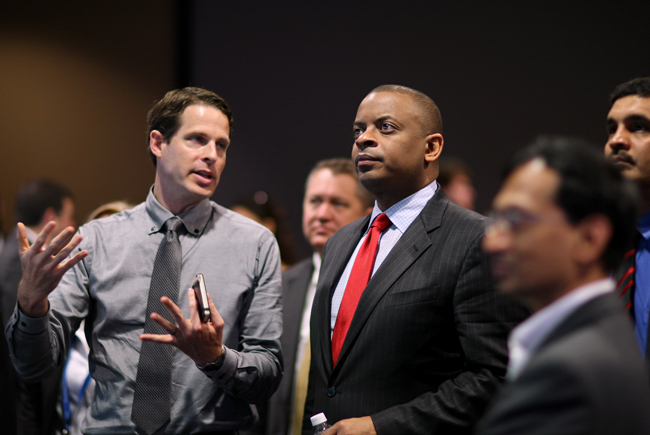Anthony Foxx, U.S. secretary of transportation, discussed the future of technology as it relates to transportation in a meeting with UT researchers, faculty, and graduate students Friday.
Foxx, who was appointed by President Barack Obama in 2013, said the administration hopes to encourage new technological developments that will improve processes such as cargo shipping.
“Freight is … a huge issue in this country because we are going to see 45 percent more freight moving around our country over the next 30 years,” Foxx said.
Different governmental bodies must work together to implement new technologies, according to Foxx.
“Metropolitan planning organizations, state departments of transportation, local departments of transportation, federal department of transportation — all those players have to intersect in order for us to get the most out of the 21st century,”
Foxx discussed “Beyond Traffic,” a federal initiative which will outline traffic trends and the way they shape the U.S. population’s needs over the course of the next three decades. According to civil engineering graduate student Kristie Chin, the program might help increase traffic control and make people more aware of the problems traffic causes, but possible
technological applications for transportation extend far beyond traffic monitoring.
“We can increase market penetration [with Beyond Traffic], but then we also looked at [using] more futuristic, higher levels of automation like 3-D printing, drones [and] automated trucking,” Chin said.
Technology could make U.S. transportation systems safer and more efficient, said Andrew Kerns, electrical and computer engineering graduate student.
“[We could] use managed lanes for connected and automated vehicles, especially for freight transportation, and … drones for situational awareness during traffic accidents,” Kerns said. “I’m particularly excited about the advent of connected and automated vehicles. The future is not very clear, but there are a lot of opportunities coming.”
UT’s Center for Transportation Research, which has received funding from the U.S. Department of Transportation, works on projects that help improve driver behavior, traffic congestion and intelligent transportation systems. UT’s innovation with technology and transportation is one that should be emulated in the rest of the country, Foxx said.
“We need to be thinking about the future — about how technology plays a role in transportation — and that kind of thought process is happening right here [at UT],” Foxx said.





















